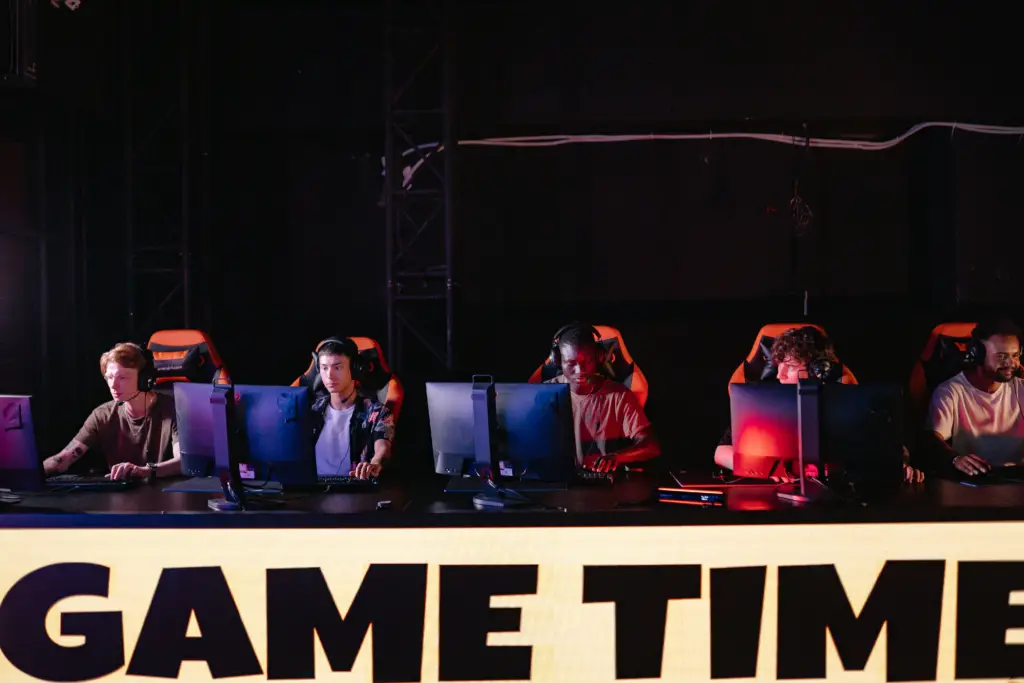One major thing that happened in the last decade is that gaming got recognized as an official sport. Video games are becoming increasingly more competitive, and people are devoting their lives to becoming the best at a specific game. For example, Dota2 has a 40 million prize pool for their biggest event, The International. That’s a lot of money. They’re leaders in watch time, with more than 10 million hours of content consumed every month.
Technology revolutionized gaming, but that doesn’t mean it will stop affecting the niche. Enormous technical advances have made it possible to include money into the mix. Now, you can buy skins, battle passes, DLCs, extensions, and in-game items with a single click. A lot has changed in the past two decades, and we’ve learned much during this time. Here are some of the ways technology affects online gaming.

HD graphics
Games like GTA: San Andreas, Age of Empires, and Assassin’s Creed were a staple in gaming culture. Many people believed that graphics couldn’t be improved much after that point. They were entirely wrong. New games have hyper-real avatars that are becoming incredibly close to reality. Programs like Unreal Engine 5 make it impossible to distinguish an AI-generated face from a real one. The trailer for Matrix divided the entire internet and showed just how close we are to creating a virtual world.
Augmented technology
Pokémon Go is a game that familiarizes augmented reality. People were out walking in the streets, trying to find imaginary characters on their phones. That spawned tons of different games that didn’t share the success, but that doesn’t mean that the same technology won’t be brought into the future.
Mobile games
The gaming revolution isn’t limited to desktop computers and laptops. Smartphones are a gaming hub, and most franchises are rebranding their popular titles for mobile. League of Legends, Call of Duty, and Player Unknown Battlegrounds are one of the few that have transitioned to mobile. Now, you can be on the go and play your favorite game. You can dive deep into your chosen experience if you have a stable internet connection.
Seamless Experiences
Modern advancements have drastically reduced latency and increased server reliability, allowing players to enjoy smooth gameplay without interruptions. Cloud computing supports vast multiplayer universes, and edge computing ensures that data is processed closer to the user for minimal delay. With the rise of AI-powered matchmaking systems, players are now paired with others of similar skill, making each session more balanced and engaging. These innovations are redefining how players interact with online platforms by prioritizing speed, stability, and overall performance.
Fast and secure payments
A decade ago, people were unfamiliar with the internet, and they were skeptical when it came to inserting their credit card details online. However, the entire industry progressed, people became more informed, and payments were now fast and secure. Services like PayPal, Venmo, and Cash App can process transactions in milliseconds, and the entire banking sector is transitioning to mobile.
Are there any risks?
Even though gaming is entertainment, that doesn’t mean there aren’t any risks. Whenever you add your payment details, you run the risk of someone hacking your device and exploiting that information. Hackers probably know everything about you if you continually use public Wi-Fi while on your phone. It’s only a matter of time before they strike.
Whenever you connect to a public network, somebody sitting in the corner of the room can launch a man-in-the-middle attack to hijack your device and read everything you write. The same can happen if you download spyware, ransomware, or any other virus.
Imagine that you’re a famous streamer for a team competing in The International, and you win a share of the 40 million prizes. There would be a large target on your back, and cyber attackers will try every trick in the book to see if you fall for one of their scams.
One of the ways to defend against cyberattacks is to use a combination of a VPN and antivirus. There are Cyber Monday VPN deals that are well worth the price. That way, you’ll be connected both online and offline.
The VPN will hide your IP address and encrypt all your data while browsing the web. On the other hand, the antivirus will scan everything you download and ensure no malware gets installed.
How will tech improve gaming in the future?
A lot of companies are focused on building in the metaverse. That’s the next frontier for gaming to conquer, where you’ll be able to immerse your senses fully. It will mimic real life, and you’ll be able to interact with other people, the blockchain, and the real world simultaneously.










